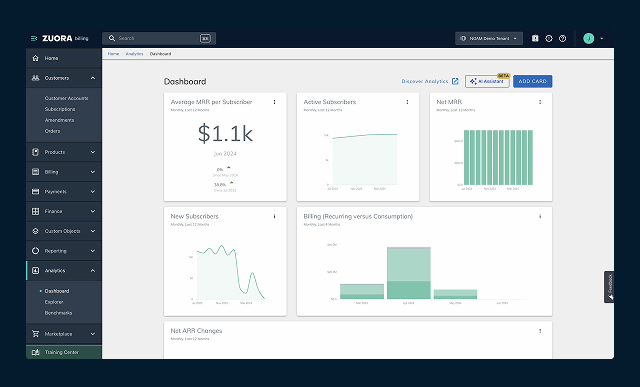2020 was the most disruptive year we’ve seen in recent history for both organisations and their employees when the global spread of COVID-19 completely changed the way we live and work. COVID-19, together with the wave of awareness that flooded the globe through the Black Lives Matter campaign, shone a spotlight on systemic inequality.
In the last year, diversity, equity and inclusion (DE&I); health and wellbeing; flexible working and growth werethe key themes that have been front of mind not only for employees but for employers too. This year’s Employee Expectations Report offers insights into employee expectations around career growth, as well as the uncertainties they are faced with in light of cost-cutting measures organisations have had to implement because of the arrival of the pandemic.
These findings are taken from a report that was compiled from more than 150 million employee survey responses and 30 million employee comments.
- DIVERSITY, EQUITY AND INCLUSION
During the last year, even though there has been a massive increase of comments regarding race inequality, focus remained on gender inequality in the workplace as well.
A breakdown of the comments reveals distinct sub-themes:
• 43 percent of comments on DE&I mentioned leadership or management
• 25 percent of comments mentioned race or minority backgrounds, with 1 in 10 from non-minorities expressing resistance and their own feelings of discrimination
• 18 percent of comments explicitly mentioned gender
• 7 percent of comments mentioned the LGBTQ+ community.
Unfortunately, the initial enthusiasm for tackling employee concerns head on slowed to plateau during the second half of 2020. This served to highlight a failure in organisations to embed sustainable change in DE&I thinking while they instead reacted to public events with one-off initiatives to appease employees in the short-term. Organisations need to implement long-term change strategies.
How organisations can support meaningful change in DE&I:
• Embed accountability: without accountability, successes and failures will fall by the wayside when priorities change or deadlines loom. This accountability and responsibility should sit with the organisation’s C-suite leaders; and business objectives must encompass DE&I goals.
• Measure inclusion and diversity: in today’s economic landscape, measuring inclusion and diversity goes without saying and organisations should use demographic representation as measures of success. Primary focus should be on talent acquisition and the promotion process, while measuring inclusivity and a sense of belonging are equally important.
• Systemic change is needed and not just personal: processes and policies must be reviewed and amended to ensure that they are created with everyone’s success in mind. It’s important that now businesses are mindful of removing the exclusion that forms part of the foundation of many systems already in place.
2. HEALTH AND WELLBEING
In the midst of a global pandemic, there has never been more focus on health while employees have been faced with a myriad of health and wellbeing concerns. Data from the 2020 Peakon Heartbeat survey shows comments regarding wellbeing increased by 46 percent. Comments related to three aspects of wellbeing (mental, physical and financial) have steadily increased during the first and second waves of the pandemic.
Physical health may seem like a main concern when dealing with a highly contagious virus, however as the pandemic progressed, talk on mental and financial health dominated the conversation during 2020. The compounding effects of lockdown have left little separation between work and home which has taken a toll on family and work life. Studies of previous viral outbreaks (SARS and Ebola) have shown that even if COVID-19 were to disappear overnight, the negative psychological effects can last for up to three years post-pandemic.
How organisations should support health and wellbeing in 2021:
• Provide accessible and affordable options: it’s important that employers provide affordable wellness options to their employees.
• Offer a holistic solution: during the past year we have been in a constant state of change and organisations need to adjust resources according to those changes. It’s important that employers offer a wide variety of options to their staff to support them on their health and wellness journeys. For example, initiatives should include access to mental health support, fitness, nutrition and more as part of their employment contracts.
• Create a culture of wellbeing to increase productivity: it’s important for employers to provide wellness offerings, certainly, but it’s just as important to embed health and wellness into the culture of the organisation. Overall health and wellbeing directly contributes to staff productivity, which emphasises the importance of an organisation’s investment into the wellness of their staff.
3. FLEXIBLE WORKING
Flexible working has become the latest buzz phrase in the last year with large consultancies already announcing the change in their work policies to incorporate flexible working opportunities for their staff. The implementations of worldwide lockdowns meant that organisations had to quickly shift office-bound workforces to work-from-home workforces in a matter of days. This led to the proportion of employee comments concerning flexible work in 2020 increasing by 125 percent compared to the previous year.
The comments covered a wide range of topics, from how to maintain a healthy work-life balance, to concerns about how companies were monitoring employees. But across all respondent replies, there was one theme that stood out from the rest and that was increased caring responsibilities. Both men and women talked about the increase of caring responsibilities as a result of the pandemic which included comments about parenting, childcare while working from home and schools closed, looking after elderly relatives, partners or spouses.
How organisations should approach flexible working:
• Implement parent-friendly policies: being able to work from home doesn’t mean much for parents if they still have to adhere to strict working hours of 9 to 5. Organisations should implement flexible hours, compressed work weeks and shorter day policies as all of these can improve productivity and reduce the risk of burnout.
• Focus on output and not hours: it seems a big concern for managers is ensuring people are working when they can’t physically see them. This can lead to an unhealthy obsession with the number of hours worked and can lead to micromanaging, which is stressful for both employee and employer. Studies have shown time and again that working long hours doesn’t make you more productive. Rather, companies need to implement more effective ways to measure output in the form of project-based work and contribution to company goals.
• Make an effort to build trust: remote working may not affect productivity, but it can affect trust between employees and employers. Uncertainty can also hinder trusting relationships in the work environment, and this can lead to high levels of anxiety. Organisations need to address this anxiety through ongoing communication about goal setting and strategy.
4. GROWTH
Companies around the world have had to respond to largely unstable economic conditions by streamlining their operations. Even those industries able to avoid redundancies have had to implement hiring and promotion freezes and quash learning and development budgets. This obviously limited growth opportunities and also contributed to a climate of uncertainty, making employees less willing to discuss growth with their managers.
What is certain, however is that businesses cannot afford to respond to uncertainty by standing still. If organisations want to keep their people engaged and productive, it’s imperative that they are offered genuine opportunities for growth.
Those employers that do empower their people will be remembered by employees once the world returns to some
level of pre-pandemic normalcy. Meanwhile, the companies that allow their people to stagnate during the pandemic are likely to face an exodus of talent as soon as new opportunities reappear.
How organisations should approach growth in 2021:
• Develop manager coaching skills: the best leaders know how to empower their team members through mentoring, but very few leaders are mentors inherently. Coaching enables managers and employees to work together in a way that produces opportunities for growth and career development. Now is the time to nurture your team – especially during a time when most promotions and pay rises have been put on hold while the economy recovers.
• Support more virtual peer-to-peer learning: despite lack of promotions, organisations can still support employee’s skills development programmes that will benefit them in their future careers. Virtual learning while we’re all living in a virtual world is very accessible and affordable.
• Outline a clear post-pandemic recovery plan: it’s essential to provide high performers with a development plan as the world begins to return to some sense of normality. Failing to offer this kind of support will result in a massive loss of talent and high staff turnover which is very costly to any organisation.
IN CONCLUSION it seems obvious to say that employee expectations and experiences are enmeshed with current global affairs and are largely influenced by the moral social climate that surrounds us. The only way to ensure people are able to produce their best work and thrive in their career is to ensure that employers understand the full scope of their employees’ expectations. Addressing ED&I, health and wellbeing, flexibility and growth are simple, morally sound ways to meet and exceed staff expectations thereby guaranteeing business success.




